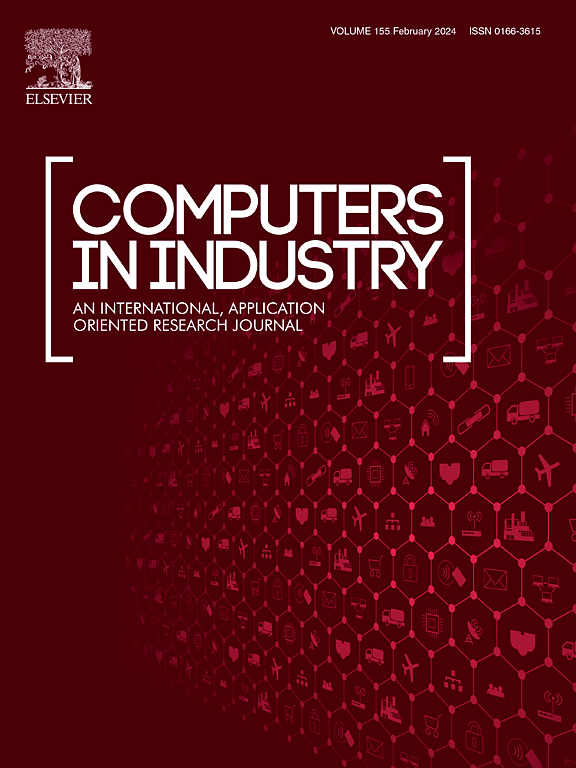Generative Manufacturing: A requirements and resource-driven approach to part making
IF 8.2
1区 计算机科学
Q1 COMPUTER SCIENCE, INTERDISCIPLINARY APPLICATIONS
引用次数: 0
Abstract
Advances in CAD (Computer Aided Design) and CAM (Computer Aided Engineering) have enabled engineers and design teams to digitally design parts with unprecedented ease. Software solutions now come with a range of modules for optimizing designs for performance requirements, generating instructions for manufacturing, and digitally tracking the entire process from design to procurement in the form of product life-cycle management tools. However, existing solutions force design teams and corporations to take a primarily serial approach where manufacturing and procurement decisions are largely contingent on design, rather than being an integral part of the design process. In this work, we propose a new approach to part making where design, manufacturing, and supply chain requirements and resources can be jointly considered and optimized. We present the Generative Manufacturing compiler that accepts as input the following: (1) An engineering part requirements specification that includes quantities such as loads, domain envelope, mass, and compliance, (2) A business part requirements specification that includes production volume, cost, and lead time, (3) Contextual knowledge about the current manufacturing state such as availability of relevant manufacturing equipment, materials, and workforce, both locally and through the supply chain. Based on these factors, the compiler generates and evaluates manufacturing process alternatives and the optimal derivative designs that are implied by each process, and enables a user guided iterative exploration of the design space. As part of our initial implementation of this compiler, we demonstrate the effectiveness of our approach on examples of a cantilever beam problem and a rocket engine mount problem and showcase its utility in creating and selecting optimal solutions according to the requirements and resources.
生成制造:零件制造的需求和资源驱动方法
CAD(计算机辅助设计)和CAM(计算机辅助工程)的进步使工程师和设计团队能够前所未有地轻松地进行数字化设计。软件解决方案现在带有一系列模块,用于优化设计以满足性能要求,生成制造指令,并以产品生命周期管理工具的形式对从设计到采购的整个过程进行数字化跟踪。然而,现有的解决方案迫使设计团队和公司采取主要的串行方法,其中制造和采购决策在很大程度上取决于设计,而不是设计过程的一个组成部分。在这项工作中,我们提出了一种新的零件制造方法,在这种方法中,设计、制造和供应链的需求和资源可以共同考虑和优化。我们提出了生成制造编译器,它接受以下输入:(1)工程部件需求规范,包括诸如负载、领域包膜、质量和遵从性等数量;(2)业务部件需求规范,包括产量、成本和交货时间;(3)关于当前制造状态的上下文知识,例如本地和整个供应链中相关制造设备、材料和劳动力的可用性。基于这些因素,编译器生成并评估制造工艺的备选方案和每个工艺隐含的最佳衍生设计,并使用户能够引导对设计空间的迭代探索。作为编译器初始实现的一部分,我们在悬臂梁问题和火箭发动机悬置问题的示例中展示了我们方法的有效性,并展示了它在根据需求和资源创建和选择最佳解决方案方面的实用性。
本文章由计算机程序翻译,如有差异,请以英文原文为准。
求助全文
约1分钟内获得全文
求助全文
来源期刊

Computers in Industry
工程技术-计算机:跨学科应用
CiteScore
18.90
自引率
8.00%
发文量
152
审稿时长
22 days
期刊介绍:
The objective of Computers in Industry is to present original, high-quality, application-oriented research papers that:
• Illuminate emerging trends and possibilities in the utilization of Information and Communication Technology in industry;
• Establish connections or integrations across various technology domains within the expansive realm of computer applications for industry;
• Foster connections or integrations across diverse application areas of ICT in industry.
 求助内容:
求助内容: 应助结果提醒方式:
应助结果提醒方式:


